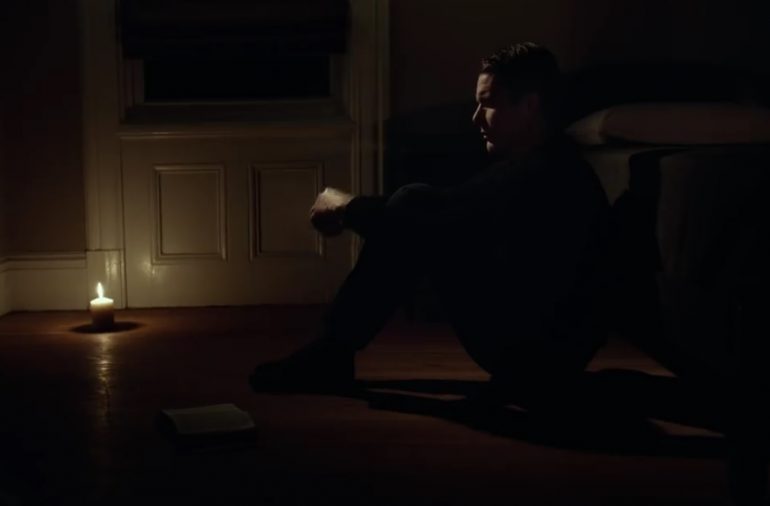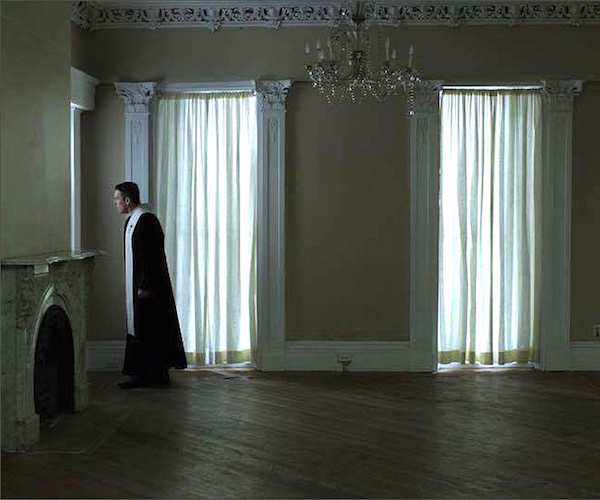First Reformed



Ladies and gents, here I present to you evidence of a crime scene; the crime of one of the best performances of the year having been completely overlooked by the industry’s highest accolades, the Oscars. In what is arguably Ethan Hawke’s career high at the point of this film’s release, the Academy unfortunately neglected it. It is, in the end, irrelevant of course, serving only as another example of how out of touch the Academy can be. The overall sweeping belief is that more recognition should have gone his way. A quick look online however reveals that credit where credit is due came from many sources including the Alliance of Women Film Journalists, the Chicago Film Critics Association, and many, many, many more.
On the other hand, writer and director Paul Schrader was nominated for best screenplay by the Oscars; his first – this is the man who wrote Taxi Driver, Raging Bull and The Last Temptation Of Christ. I’ll just leave that here.
Ethan Hawke’s minimalist and stoic life as a reverend is interrupted when a climate activist’s wife comes to him for guidance. She is pregnant, and her husband unable to reconcile the reality of bringing a child into a world which is well on its way to environmental destruction. The encounter between the reverend and activist is shattering, setting the holy man on an existential downward spiral, whilst already running from a traumatised past. At the forefront is the question of where the church’s involvement is, or lack thereof, on the issue of climate change and global warming. Underlying this is a single man’s attempt at grieving and his struggle to feel relevant in the world.
Not only has Paul Schrader written some of American cinema’s most timeless classics, and directed some of modern film’s biggest stars and talents, he teaches, critiques, and writes about film, his specialisation being Transcendental style. In his studies on the topic he takes much inspiration from Bresson, Ozu and Dreyer, the ghosts of all three of these Masters embodied in First Reformed.
Shot in a 4×3 frame and Dreyer-esque in its composition and its stripped-down simplicity, uncrowded production design, unobtrusive to the core of the the Socratic dialogues and the lead character’s voice-overs, issues of pride, hope and self-pity are reflected upon in a poetic meditation on human existence. Suitably, the pacing is generously unrushed, never lingering. It is a beautiful canvas on to which Schrader has painted a portrait of a period of crisis we are currently dealing with.
Grief is an issue we are eventually all faced with, sooner rather than later, whether it be for the passing of a loved one, the loss of a person or place, or for the suffering and dying of the planet and its inhabitants. Burning at both ends, the grief of the past and the grief for what is to come, like the loners of Schrader’s previous heroes (most famously de Niro’s Travis Bickle in Taxi Driver), Hawke’s character follows a questionable path of self-destruction, looking for some solution, but confronted only by the abyss. I’m not going to pretend I fully understand the ending. Its ambiguity leaves much to be contemplated.
